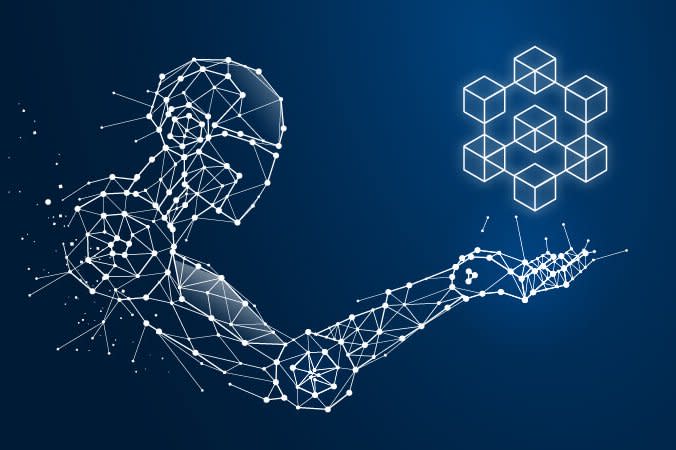AI models have the reputation of often working with a large amount of data, and scientists have already predicted blockchain to be the future of data storage. Furthermore, blockchain have smart contracts that allow users to program the blockchain network to govern transactions amongst the participants involved in generating or accessing the data, or decision-making. Autonomous applications and machines based on blockchain smart contracts can learn and adapt to changes as time progresses, and they can also make accurate and trusted decisions, outcomes verified and validated by the mining nodes of the blockchain network.
 Most AI models and practices today are centralized, and although centralization has brought a lot of success to the AI industry, there is a major drawback with centralized data storage for AI models. When the entire data is stored in a centralized manner, the possibility of data tampering, or data corruption increases as centralized data storage is always a subject to malware and cybersecurity attacks. Furthermore, when dealing with a large amount of data, it is a challenging task to verify the authenticity & provenance of the data source is not guaranteed which may result in wrong training of the model that can further result in unwanted, inaccurate, and even dangerous outcomes.
The challenges with data storage for AI models is the major reason behind the use of blockchain in AI and the development of decentralized AI. The primary aim of decentralized AI is to enable a process and perform decision making or analytics using a digitally signed, secured, and trusted shared data that has been stored & transacted on the blockchain network in a decentralized or distributed manner without using external Third-Party resources.
Most AI models and practices today are centralized, and although centralization has brought a lot of success to the AI industry, there is a major drawback with centralized data storage for AI models. When the entire data is stored in a centralized manner, the possibility of data tampering, or data corruption increases as centralized data storage is always a subject to malware and cybersecurity attacks. Furthermore, when dealing with a large amount of data, it is a challenging task to verify the authenticity & provenance of the data source is not guaranteed which may result in wrong training of the model that can further result in unwanted, inaccurate, and even dangerous outcomes.
The challenges with data storage for AI models is the major reason behind the use of blockchain in AI and the development of decentralized AI. The primary aim of decentralized AI is to enable a process and perform decision making or analytics using a digitally signed, secured, and trusted shared data that has been stored & transacted on the blockchain network in a decentralized or distributed manner without using external Third-Party resources. 